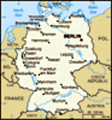Advertisement
Published: October 22nd 2021
By this, I mean, have you been to a place that no longer exists? The most likely, for Vietnam vets, would be North and South Vietnam, now a united Vietnam. Other common places, that no longer exist would be Rhodesia (now Zimbabwe), the USSR, Czechoslovakia (now Slovakia and Czech Republic), Yugoslavia (now Slovenia and Croatia), and East and West Germany (now Germany). Contrast this to places whose names have changed from their colonial names. These are places like Myanmar (formerly Burma), the Democratic Republic of the Congo (Belgian Congo), Thailand (Siam), Bolivia (Charcas), Burkina Faso (Republic of Upper Volta), or Armenia (Hayastan). The border is essentially the same, but the names have been changed. Here is some background (from Exploring) information:
Yugoslavia ('Land of Southern Slavs') came into being in 1918 following the collapse of Austria-Hungary. The country was a kingdom until World War II when King Peter II was deposed and Yugoslavia became a socialist republic under dictator Josip Broz Tito. Tito was successful in holding the country together but, after his death in 1980, simmering ethnic tensions came to the fore as the economy faltered. Slovenia and Croatia declared independence in 1991, and the bitter Yugoslav Wars that followed
led to the break-up of the nation in 1992.Carved out of former territories of Austria-Hungary that included the Kingdom of Bohemia,
Czechoslovakia was born in 1918. The Central European nation started out as a democratic republic but became a communist satellite state of the USSR in 1946. The nation remained communist until 1989 when the peaceful Velvet Revolution ended one-party rule. This was followed by increasing nationalist sentiment among Czechs and Slovaks, which prompted the dissolution of the country in 1992 and its split the following year into two sovereign states: the Czech Republic and Slovakia.A key 20th-century superpower, the
USSR was formed in 1922 following a brutal civil war that ended in victory for the communist 'Reds'. A one-party state made up of numerous Soviet republics, the vast nation was at odds with the capitalist West since its inception. This clash of ideologies culminated in the Cold War, which brought the world to the brink of nuclear conflict. The country's rigid communist ethos spelled its downfall. By the 1980s, its economy and political system were crumbling. The death knell came in 1989 with the Fall of Communism in Eastern Europe,
and the USSR was formally dissolved in 1991.Germany was split into three Western zones and a single Soviet zone following World War II. The Western zones formed the Federal Republic of Germany, aka West Germany, while the Soviet zone became the German Democratic Republic or
East Germany. The Soviet satellite state, which had a strict command economy, erected the infamous Berlin Wall in 1961 to stop its citizens defecting to the more affluent West. By the late 1980s, the regime was on death's door politically and economically. The Peaceful Revolution of 1989 dealt the final blow and led to the fall of the Iron Curtain and reunification of Germany.Communist revolutionary Ho Chi Minh, who declared independence from French Indochina in 1945, captured much of northern Vietnam by the early 1950s and defeated the former colonial power in 1954. The peace talks that followed granted Vietnam independence and split the country into two zones,
North Vietnam and South Vietnam, with elections planned for 1956 that would unite them. The South's anti-communist leader Ngo Dinh Diem refused to hold the reunification elections and the North reacted by starting the bloody 20-year Vietnam War. Despite the involvement of US, Australian and Thai forces, the South was defeated by the Soviet Union and China-backed North, and the two zones were forcibly united in 1976 to create the Socialist Republic of Vietnam.Anxious to remain in power as Africa was decolonizing, the white-minority government of
South Rhodesia, which had been a UK colony since 1923, declared independence unilaterally in 1965. Though never recognized internationally, the illegal nation was a de facto country for 14 years.Resistance to the regime was fierce. The ensuing conflict was fought out between the Rhodesian government, Marxist-Leninist ZIPRA and Robert Mugabe's ZANU, which emerged victorious. Hostilities ceased in 1979, ending white-minority rule, and the Republic of Zimbabwe was formally created the following year. So, the only place where I have visited BEFORE being wiped out, the non-existent East Berlin, and East Germany. I went through Checkpoint Charlie four times in 1971. I have told you the story many times. It remains one of my most unique and interesting travel experiences. And it is one that no longer exists! As far as the other places, I plan to visit Croatia next May. And I have been to the successor countries of the former USSR (now Russia), Vietnam, Czech Republic, and Zimbabwe. While you know I love to travel, I also enjoy studying maps and globes. And even places that no longer exist.
Advertisement
Tot: 0.075s; Tpl: 0.011s; cc: 12; qc: 24; dbt: 0.0336s; 1; m:domysql w:travelblog (10.17.0.13); sld: 1;
; mem: 1.1mb







